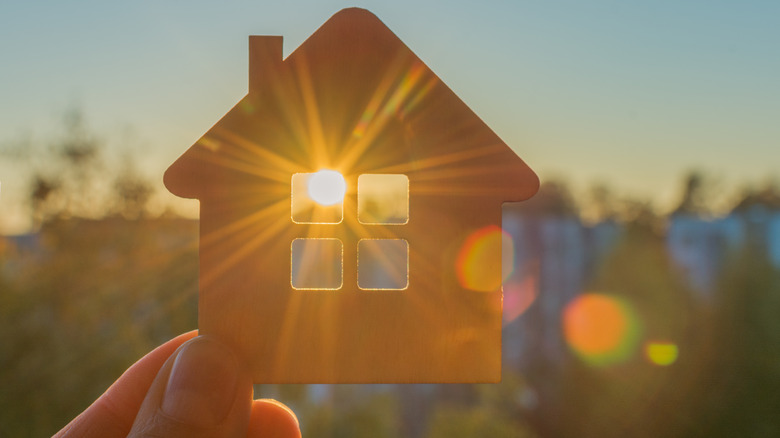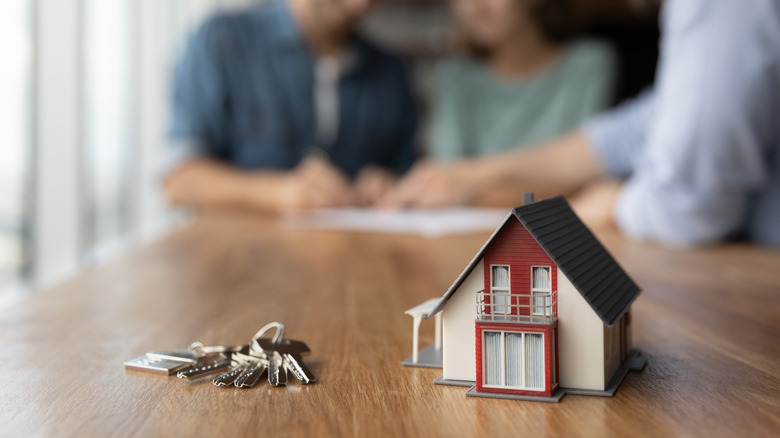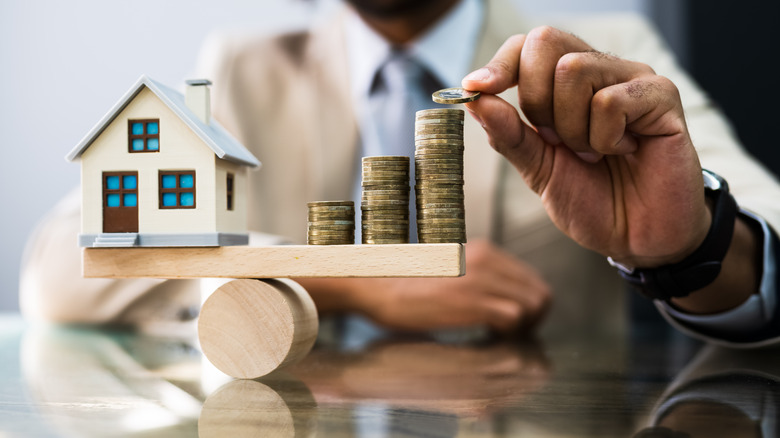What Is A Starter Home?
Starter homes are typically smaller dwellings purchased by first-time homebuyers with the idea of it being an investment in their future. Generally featuring just one or two bedrooms and a single bathroom, these homes are meant to be lived in for three to seven years (enough time to see at least some kind of return on investment), according to Zillow. Housing prices have soared recently, making homeownership more challenging for first-time buyers. Even so, a starter home is still more affordable than a larger house.
The Balance reports that finding a good deal on a starter home might be easier in the fall as the industry has a proven trend of increasing inventory later in the year. When looking to purchase as a first-time home buyer, it's important to feel comfortable with the location and neighborhood of your potential purchase but also to make sure the home doesn't require too much repair.
Starter homes aren't just for newbies anymore
The Balance says that since incomes have risen slower than the cost of housing, the interest in starter homes has expanded to anyone — not just first-timers — looking for a home on a lower budget. And millennials have adapted to the market, changing the way first-time home-buying looks. Pure Wow claims that millennials have shifted their home-buying interests to reflect the times. This generation tends to live with parents longer in order to save money for a more established type of house, skipping starter homes altogether. Also, with more work-from-wherever opportunities available, homebuyers are no longer stuck in a zip code close to their job. Those who are set on buying a home in a specific location are more apt to bid on whatever is available, even if it costs them more. With everyone looking at these more affordable homes, they tend to sell quickly.
Preparing for your starter home purchase
Nerd Wallet has several tips to help first-time homebuyers prepare for their big purchase, beginning with saving for their down payment, closing costs, and move-in-related expenses. You'll also need to check your credit and strengthen it if necessary. Work with a lender who can help you with the pre-approval process and guide you into understanding your credit score, its limits, and the amount of debt you can take on. A lender will also help you choose the best type of financing available to you, but don't leave all the work to them — make sure you research on your own so that you can explore rates and assistance programs.
Once you're ready, select a real estate agent. Getting referrals from family and friends can be very helpful with this part of the process. According to The Mortgage Reports, a good agent will be knowledgeable about neighborhoods and will make sure you are happy with the areas you are interested in. They should also keep your budget in mind and keep you within your budget, as well as being an expert negotiator. When you find a potential home, spend the money to have it properly inspected. It may seem costly upfront, but it can steer you from a financial disaster and give you confidence in buying your starter home.


